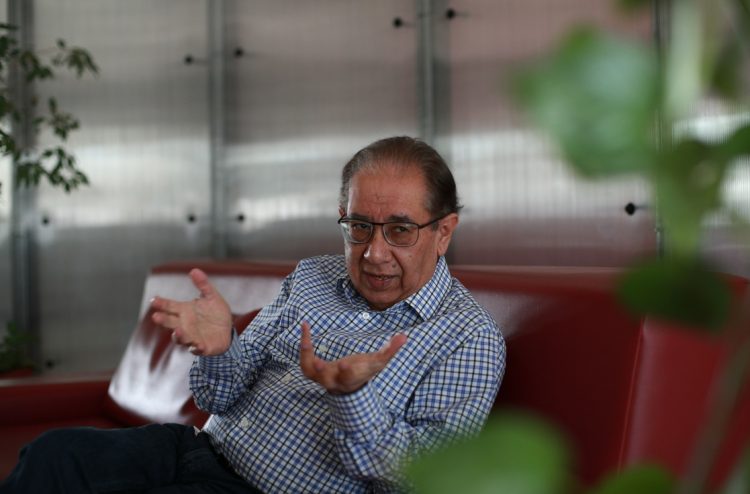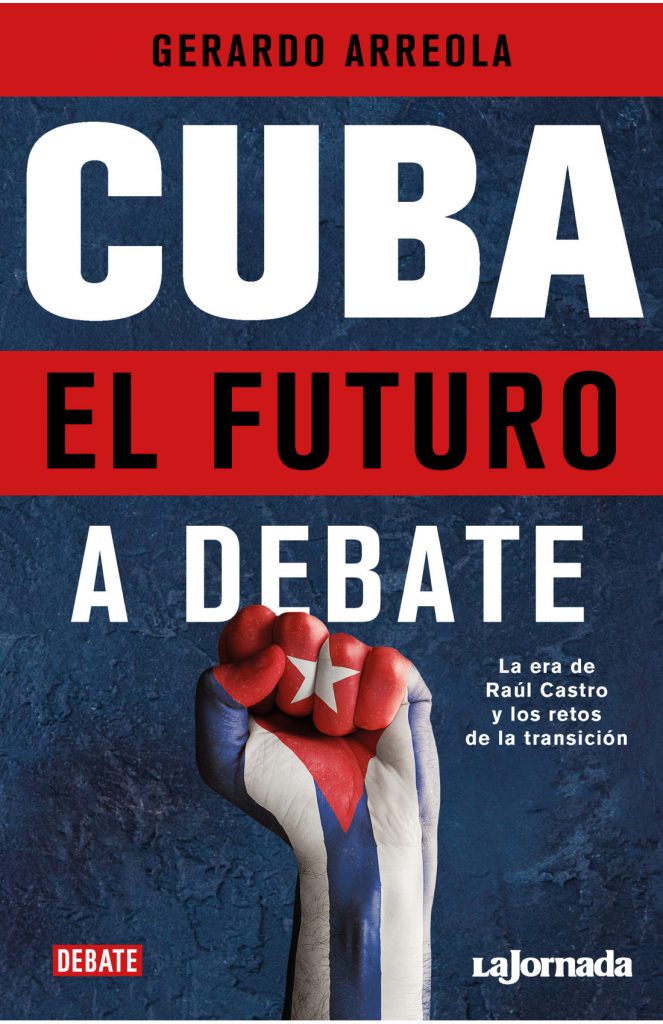Mexican writer and journalist Gerardo Arreola, author of the book Cuba, el futuro a debate (Cuba, the future under debate), assured EFE this Sunday that the lack of decisions to resolve the economic crisis, and the increase in repression are not the way to solve the problems on the island.
“An absence of political decisions in economic matters and a reinforcement of repression through the courts do not seem to be the best way to move forward,” Arreola told journalist Gustavo Borges in a reflection on his work, a chronicle of the time of Raúl Castro in power and the challenges of the Cuban transition.
The book, published by La Jornada and the Penguin Random House publishing group (in the series: Debate), analyzes the situation in Cuba from the experience of someone who was a witness for more than 15 years, as a correspondent, of the Cuban events before and after Fidel Castro was forced by illness to relinquish power.
“I tried to reflect that Cuban society is plural, there are those who are absolutely supporters of the government and do not admit criticism and there are critics of the government, without the possibility of dialogue, but in the middle, there is an observer, polemicist, critical and active society; this is one of the novelties of the current Cuban situation,” he pointed out.
ECONOMIC CRISIS
When referring to the economic crisis, the journalist considered that it may be greater than that of the special period in the 1990s, a consequence of the collapse of the socialist camp. He believed that the government has lacked the will to apply measures that help the people.
“There is an absence of political will to accept proposals from researchers close and distant from the government, which are technically very close,” he said, referring to debates by economists calling for freedom for state-owned enterprises, freeing economic space for agricultural producers and other alternatives.
When he was about to finish the book, Arreola had to extend it to refer to the massive protests that occurred on July 11, 2021, whose participants the government described as being at the service of the CIA, although he recognized, in principle and very slightly, that It had also been a real outbreak of dissatisfaction.
“It is striking that the demonstrations in July of last year have led to trials with high sentences if one takes into account what happened. The background of the situation, recognized by the government itself, is that there were dissatisfied people, outraged by the spectacular rise in prices and the shortage of basic products, perhaps aggravated by the pandemic,” he explained.
Arreola accepted that among the protesters there were violent people who broke shop windows, but he wonders if, even in the case of the aggressive ones, they deserved harsh prison sentences. “There are 16, 17 year olds on trial,” he recalled.
In his book, according to EFE, Arreola avoids trials and portrays the Cuban situation from different angles, with topics such as the government’s relationship with the Church, the 2019 Constitution, the rise of the military in key government positions and the issue of emigration.
SOCIAL NETWORKS AND CORRUPTION
Unlike other times, the Internet has allowed the daily reality of Cuba to appear on social networks, a blow to official censorship, on which the correspondent reflected: “Criticism and observation of reality multiplied because the accounts skyrocketed in social networks. It is enough that something happens in a corner of the island for someone to register it,” he indicated.
#Cuba "Todos coinciden en que la situación, como está planteada, es insostenible para la gente de a pie – la mayoría de las familias cubanas dedican el 90% de sus ingresos, o incluso más, en adquirir la canasta básica"…@el_pais https://t.co/QDFiXVijiW
— Gerardo Arreola (@GerardoArreola) February 17, 2022
The journalist believes that Cuba is bleeding dry with the departure of young people abroad, many of them high-level professionals, to which is added the aging of society, which in a few years will be the oldest in Latin America. Another current issue is that of corruption in the government, which was recognized during his presidency by Raúl Castro, whom the author calls “a reformer.”
“Raúl pointed out corruption as something serious and over time it was identified as a national security problem. Corruption at a high level, with a considerable level of resources, has been recognized as something that could become a political and governance threat,” he concluded.
EFE/OnCuba












